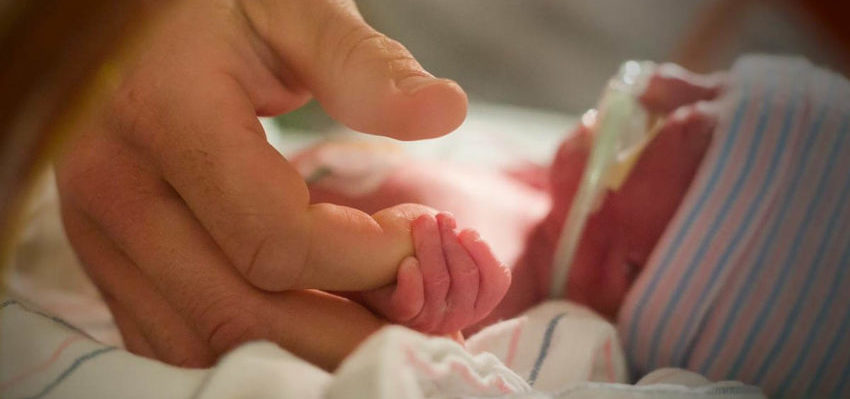 As the Assembly debates a “born-alive” bill today, @DanODonnellShow wants to know when it became controversial to not kill newborn babies. #Prolife #Life #Love #wipolitics #wiright Click To Tweet
As the Assembly debates a “born-alive” bill today, @DanODonnellShow wants to know when it became controversial to not kill newborn babies. #Prolife #Life #Love #wipolitics #wiright Click To Tweet
May 15, 2019
Special Guest Perspective by Dan O’Donnell
One of the more surprising political developments of the past several years has been the necessity of legislation prohibiting the slaughter of newborn infants. Even more surprising? This is somehow controversial.
Assembly Bill 179 is thus neither moot nor redundant; it is merely a requirement that doctors who perform abortions treat the survivors of such procedures as they would any other premature baby.
Governor Evers has already promised to veto Assembly Bill 179—the so-called “born-alive” bill—that the Legislature is taking up this week, calling the suggestion abortion providers in the state could kill an infant who survives the procedure “a blasphemy.”
“It doesn’t happen,” Evers said last month. “We already have things on the books. This is nothing more than a distraction from the work that we need to do.”
This assertion is about as accurate as the Governor’s use of the word “blasphemy.”
He and Democrats in the Legislature believe Wisconsin Statute §940.01 to be sufficient protection since it provides that “whoever causes the death of another human being with intent to kill that person or another is guilty of a Class A felony.”
Putting aside for a moment the obvious logical problem of abortion within Wisconsin’s homicide statute (the very next clause of §940.01 is “whoever causes the death of an unborn child with intent to kill that unborn child…is guilty of a Class A felony”), Democrats reason that this is deterrent enough to keep abortionists from killing surviving newborns.
In order for this statute to apply, however, a defendant charged with it must take an affirmative action to kill the surviving child with the intent to kill that child. Newborns who survive abortions don’t die from a specific affirmative act; they die from neglect.
As Virginia Governor Ralph Northam—a pediatric neurologist—controversially explained in January:
The infant would be delivered. The infant would be kept comfortable. The infant would be resuscitated if that’s what the mother and the family desired. And then a discussion would ensue between the physicians and the mother.
That conversation, naturally, would center on whether the infant should be allowed to die of natural causes. Because there is no affirmative action that kills the child, there can be no intentional homicide charge. Negligent and reckless homicide statutes similarly do not apply since there is no negligent or reckless act that causes the death of the child after he or she is born. The child is simply denied the medical care needed to survive.
Assembly Bill 179 merely requires that this care is provided:
This bill requires any health care provider present at the time an abortion or attempted abortion results in a child born alive to exercise the same degree of professional skill, care, and diligence to preserve the life and health of the child as a reasonably diligent and conscientious health care provider would render to any other child born alive at the same gestational age and to ensure that the child born alive is immediately transported and admitted to a hospital.
In other words, doctors would be held to their Hippocratic Oath and required to treat the survivor of an abortion as the human being he or she rather obviously is.
In other words, doctors would be held to their Hippocratic Oath and required to treat the survivor of an abortion as the human being he or she rather obviously is.
Opponents of the legislation here point to its mootness, since no aborted fetus in Wisconsin could possibly survive outside of the womb. Wisconsin Statute §940.15 provides that abortion is illegal after “viability,” that is, the “stage of fetal development when, in the medical judgment of the attending physician based on the particular facts of the case before him or her, there is a reasonable likelihood of sustained survival of the fetus outside the womb, with or without artificial support.”
Generally speaking, this has been interpreted to be after 21 weeks of pregnancy. Since a fetus cannot survive before this point and abortion is illegal after, Democrats claim born-alive legislation is wholly unnecessary.
Only a fetus can survive before this point.
In 2014, San Antonio native Courtney Stensrud was 21 weeks and four days pregnant when she gave birth to a baby girl whose “skin was so thin, it was nearly see-through” and whose breathing was so faint it was barely detectable.
In these situations, doctors don’t recommend resuscitation. But, when Stensrud looked at [her neonatologist Kaashif] Ahmad through tears and asked him to try, Ahmad did.
“If you’d like us to try, I’m willing to try,” Ahmad said.
When doctors placed a breathing tube into her airway, the baby that was once blue turned pink.
She is now a healthy preschooler.
Assembly Bill 179 is thus neither moot nor redundant; it is merely a requirement that doctors who perform abortions treat the survivors of such procedures as they would any other premature baby.
The only thing at all outrageous or controversial about this is that there is such significant opposition to it.